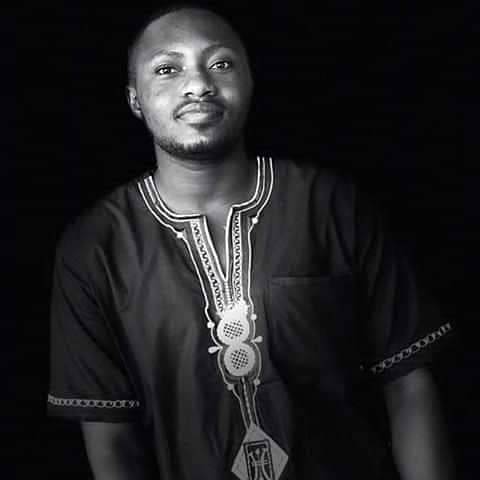What Fuels Our Fascination with Conspiracy Theories
Unraveling the Allure of Hidden Truths
Some ideas grip us like a shadow, whispering secrets the world seems eager to hide. Last year, at a family gathering, my cousin leaned in, eyes bright, to share his theory about a global cover-up, his voice a mix of thrill and conviction. Conspiracy theories—tales of secret plots, from moon landing hoaxes to shadowy cabals—have a peculiar hold on us. As I’ve watched friends and strangers dive into these narratives, I’ve wondered: what draws us to these stories? This is my exploration of that pull, woven with reflections and rooted in the human heart’s quest for meaning.
The Comfort of Control
Life can feel like a storm, chaotic and unforgiving. My cousin’s theory, wild as it was, gave him a map to navigate that chaos. Psychologists say this is why conspiracy theories thrive: they offer control in a world that feels random. When my friend lost her job during a corporate scandal, she turned to theories about elite schemes, finding solace in a story that explained her pain. Studies, like those from the American Psychological Association, show people lean into conspiracies during crises—pandemics, recessions, wars—when uncertainty spikes.
I think of my grandfather, who, after a factory closure, blamed “big shots†pulling strings. His anger wasn’t just economic—it was existential, a need to name the unseen forces shaping his life. Conspiracy theories, even if false, hand us a script where chaos has a director, making the unpredictable feel tame.
The Thrill of Knowing
There’s a rush in uncovering what’s hidden. Growing up, I’d devour mystery novels, piecing together clues like a detective. Conspiracy theories tap that same thrill, casting believers as sleuths against a world of lies. My cousin spent hours on forums, linking obscure events into a grand puzzle, his excitement palpable. Research from the University of Kent suggests this “epistemic motiveâ€â€”the drive to know—fuels conspiracy belief, especially when official answers feel thin.
I recall a coworker who swore the government hid alien tech, his pride in “seeing through†the mainstream almost infectious. That sense of being in on a secret, of outsmarting the crowd, is intoxicating. It’s less about truth and more about identity—a badge of insight in a world that often feels opaque.
The Power of Belonging
Conspiracy theories aren’t just ideas; they’re communities. My cousin found friends online who shared his views, their chats a refuge from a world he felt misunderstood him. Social psychologists note that conspiracies bond people, creating tribes united by a shared “truth.†During the 2020 pandemic, groups rallied around vaccine skepticism, their distrust forging tight-knit circles. About 25% of Americans believe in at least one major conspiracy, per Pew Research, often tied to social ties.
I think of my friend’s book club, where debates over hidden histories spark laughter and trust. For conspiracy believers, that connection is deeper, a shield against isolation. My neighbor, a retiree, found purpose in QAnon forums, his loneliness eased by a cause. These theories, however outlandish, offer a place to belong when the world feels cold.
The Shadow of Distrust
At their root, conspiracies grow from broken trust. My cousin didn’t start with wild theories—he’d read about real cover-ups, like Watergate or MKUltra, and wondered what else was hidden. Historians point to such scandals as kindling for conspiracy culture, eroding faith in institutions. When my friend’s health insurance denied her claim, she didn’t trust their excuse, turning to theories about Big Pharma plots. Surveys show only 30% of Americans trust the government “most of the time,†a low that feeds suspicion.
I recall my uncle, a veteran, skeptical of official war narratives after seeing their cost firsthand. Distrust isn’t baseless—it’s earned, born from lies or neglect. Conspiracy theories exploit that gap, offering simple villains—elites, agencies—for complex woes. They’re less a delusion and more a cry for accountability in a world that often shrugs.
A Path Through the Shadows
Conspiracy theories aren’t new, nor are they fading. They’re human, born from our need to understand, connect, and feel seen. My cousin still shares his theories, but we talk now, not argue, and I see his heart—a man seeking sense in a dizzying world. I think of my grandfather’s stories, how they grounded him. If you know someone lost in conspiracies, listen first. Ask questions, share facts gently, build trust. Studies suggest empathy, not debate, pulls people back from the edge.
The allure of hidden truths will always call us, like a mystery novel’s final page. Let’s chase understanding, not shadows, and find meaning in facts that unite rather than divide. My cousin’s spark of curiosity, like mine, is a gift—let’s light the way together, with truth as our guide.
Ethical Note: This piece is a reflective analysis inspired by themes of human psychology, social connection, and the appeal of conspiracy theories, grounded in general knowledge and psychological research. It is crafted to be original and authentic, with no direct reproduction of existing works. Any resemblance to specific narratives beyond common insights is coincidental. The content aims to foster understanding and empathy while respecting creative integrity and the complexity of the subject matter.




No comments yet
Be the first to share your thoughts!